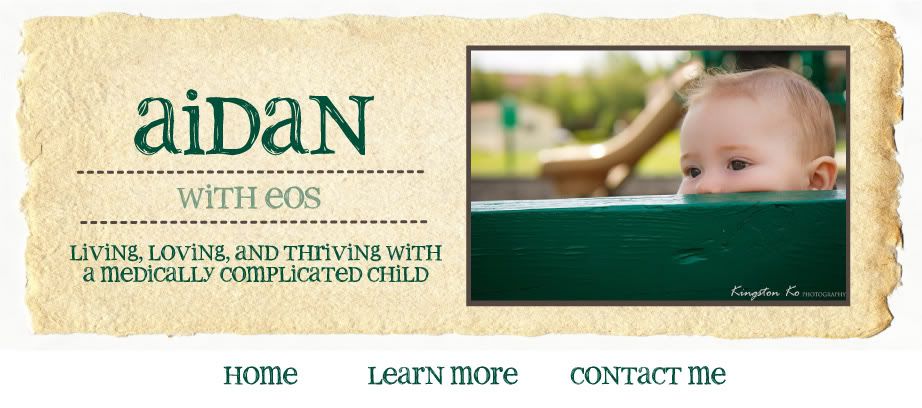Some time ago, another mother posted a link to an article in one of the Facebook support groups that I frequent. It was called Advocacy: putting emotion aside.
I enjoyed the read, and did some further reading on the topic online. So often, we proclaim that we are our child's best (only?) advocate. But there's more that goes into advocacy than our maternal instincts and fierce hunt for answers. How effective can you be as an advocate if you are driven by your emotions?
Advocacy is so much more than shouting from the rooftops as loudly as you can. It's doing your research - finding out who makes the decisions that affect your child and how to connect with those people. It's also about learning all there is to learn about your child's disorder - not just as it affects him, but also as it affects everyone around him! And once you've done the research, stay organized - binders work well for us - so that you can enter your next discussion armed with all of the information you've collected.
I think the biggest takeaway for me was that successful advocacy for your child requires that you know what your end goal is going to be. Where do you see your child, and what needs to be done to get him there? Instead of "My child has X disorder, what are you going to do about it?" - try "My child has X disorder, and needs Y and Z in order to receive an appropriate education." Knowing what you're asking for at the outset leads to FAR more productive conversations.
It's hard to put the emotions aside when advocating for your child - but taking a calm approach will always pay off in the end.
What tricks have you learned that have helped you advocate for your child?
I enjoyed the read, and did some further reading on the topic online. So often, we proclaim that we are our child's best (only?) advocate. But there's more that goes into advocacy than our maternal instincts and fierce hunt for answers. How effective can you be as an advocate if you are driven by your emotions?
Advocacy is so much more than shouting from the rooftops as loudly as you can. It's doing your research - finding out who makes the decisions that affect your child and how to connect with those people. It's also about learning all there is to learn about your child's disorder - not just as it affects him, but also as it affects everyone around him! And once you've done the research, stay organized - binders work well for us - so that you can enter your next discussion armed with all of the information you've collected.
I think the biggest takeaway for me was that successful advocacy for your child requires that you know what your end goal is going to be. Where do you see your child, and what needs to be done to get him there? Instead of "My child has X disorder, what are you going to do about it?" - try "My child has X disorder, and needs Y and Z in order to receive an appropriate education." Knowing what you're asking for at the outset leads to FAR more productive conversations.
It's hard to put the emotions aside when advocating for your child - but taking a calm approach will always pay off in the end.
What tricks have you learned that have helped you advocate for your child?


No comments:
Post a Comment